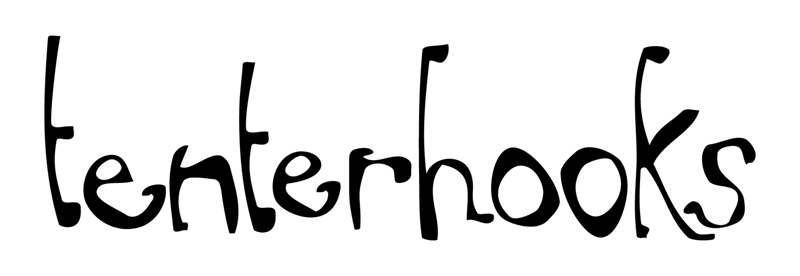If you hear someone say that he is on "tenterhooks", would you know what he means? Is there even a word like "tenterhooks"? Before you fall into making a common mistake, the word is not "tenderhooks" or
"tender hooks",
and the word simply refers to a feeling of anxious anticipation, which is close to being in painful suspense. Do you know how people came to use the word tenterhooks? Well, here's some information that will probably be of interest to you.

Where Does the Word Tenterhooks Come From?
Not many people have heard the word, and few people really know what tenterhooks are. They might even think they hear "tender hooks" because that's how it sounds. But tenderhooks or not, what does it really mean?
Well, first of all, tenterhooks are in no way connected with butchers' hooks or tents. The word "tenter" is derived from the Latin word tendere, which literally means to stretch. It has been used since the 14th century, and being "on tenters" became a popular expression to mean painful anxiety.
The Origin of Tenterhooks
Tenterhooks were originally used in the English process of making woolen cloth. After weaving, the wool, which still had oil mixed with dirt from the fleece, was cleaned and carefully dried to prevent creasing and shrinkage. People then stretched the lengthy wet cloths on wooden frames and let them to dry in the open. This process straightened them out as they dried. The frames were called tenters, which had metal hooks to fasten the cloth.
The process of drying wool in tenters was used in the 16th to the 17th centuries, and there was a time when fields as manufacturing areas were common. In fact, one would see old English maps marked with areas called tenter-fields.
So today, if someone says that he is on tenterhooks, he would probably mean that he is anxiously awaiting something, such as the results of a medical test. You would probably imagine him feeling like he is being stretched out thin, like a piece of cloth hooked to a frame (tenter).
Do You Know the Origin of on Tenterhooks?
Being on tenterhooks (not tender hooks or tenderhooks) means to be nervously awaiting something, perhaps in anticipation of what is going to happen in a potentially perilous situation. This originally was expressed as 'on the tenters'.
Some people believe that although the expression was commonly used in 16th century, it was first recorded in Broken Heart, a play written in 1633 by John Ford, an English playwright. The line read, "Passion, O, My very heart strings are on the tenters."
By the end of that century, the expression 'on the tenterhooks' replaced the original phrase. This was found in print in The General History of Europe, a 1690 periodical published annually in 1688 to1693. It said:
"The mischief is, they will not meet again these two years, so that all business must hang upon the tenterhooks till then."
The Oxford English Dictionary, on the other hand, states that the phrase, which means to be in suspense, was first recorded in 1748 by Tobias Smollett, but was used in its standard form in 1812, by a soldier named Sir Robert Thomas Wilson, who wrote:
Until I reach the imperial headquarters I shall be on tenterhooks.

View All Comments /Add Comment